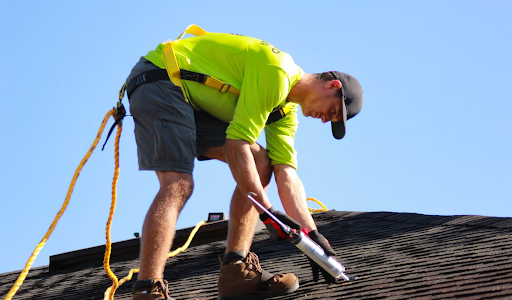The roof inspection process involves an in-depth evaluation of the condition and performance of your roof. At the initial stage, a professional roofer will conduct a visual inspection to assess the overall condition of your rooftop, including any signs of damage or wear. Depending on the type and age of your roof, additional tests may be conducted for evidence of damage. But we’re getting ahead of ourselves!
When is an Inspection Required?
In the United States, most local building codes recommend roof inspections after certain weather events. These might include significant winds, hail storms, or heavy snowfall. It is also common for insurance companies to request an inspection before issuing a policy or renewing coverage. In addition to the initial inspection, annual inspections can help you identify potential problems before they become expensive repairs.
What is a Roof Inspection?
After you contact a General Roofing Contractor In South Florida, they’ll be able to provide you with a comprehensive roof inspection. During the assessment, your contractor will check for any signs of damage or wear that could cause problems down the road. Some common issues include:
- Cracked tiles and shingles
- Debris build-up on the attic floor
- Broken seals around vent pipes
- Leaks or moisture damage
- Granule loss on asphalt shingles
- Exposure to intense sunlight and UV rays
- Signs of nesting animals or pests
If any of these signs are present, they will likely need to be addressed. Your contractor may conduct additional tests if there are signs of more serious damage.
What Does a Roof Inspection Involve?
A roofing contractor typically performs an inspection in several steps. First, they will visually inspect the roof for signs of damage or wear. This can include checking for missing shingles, curling edges, moss buildup, and other visible defects.
Next, they will typically use a moisture meter to check for any areas where water may have gotten inside the roofing material. They may also take core samples of the roofing material to analyze its structural integrity.
Lastly, they will generally perform a thermal scan of the roof to assess how much heat is being absorbed or reflected. Ultimately, this will help them identify any areas that may need extra insulation or ventilation to ensure the roof is performing optimally.
The roofing contractor should also explain their findings and provide suggestions for repair or replacement if necessary. It’s important to ask questions and make sure you understand what they are recommending before you sign off on anything. As they check both outside and inside, it’s a good idea to have them take photos of any potential problems and document their observations; this will provide evidence should there be any disputes down the line.
Overall, having a roofing contractor perform an inspection can help protect your home or building from future damage and costly repairs. A proper inspection may even extend the life of your roof and result in savings down the road. The most important thing is to make sure you hire a reputable contractor who can provide an accurate assessment of your roof’s condition. From guttering to Ac Stand Fabrication In Ormond Beach, choose a professional company today?
